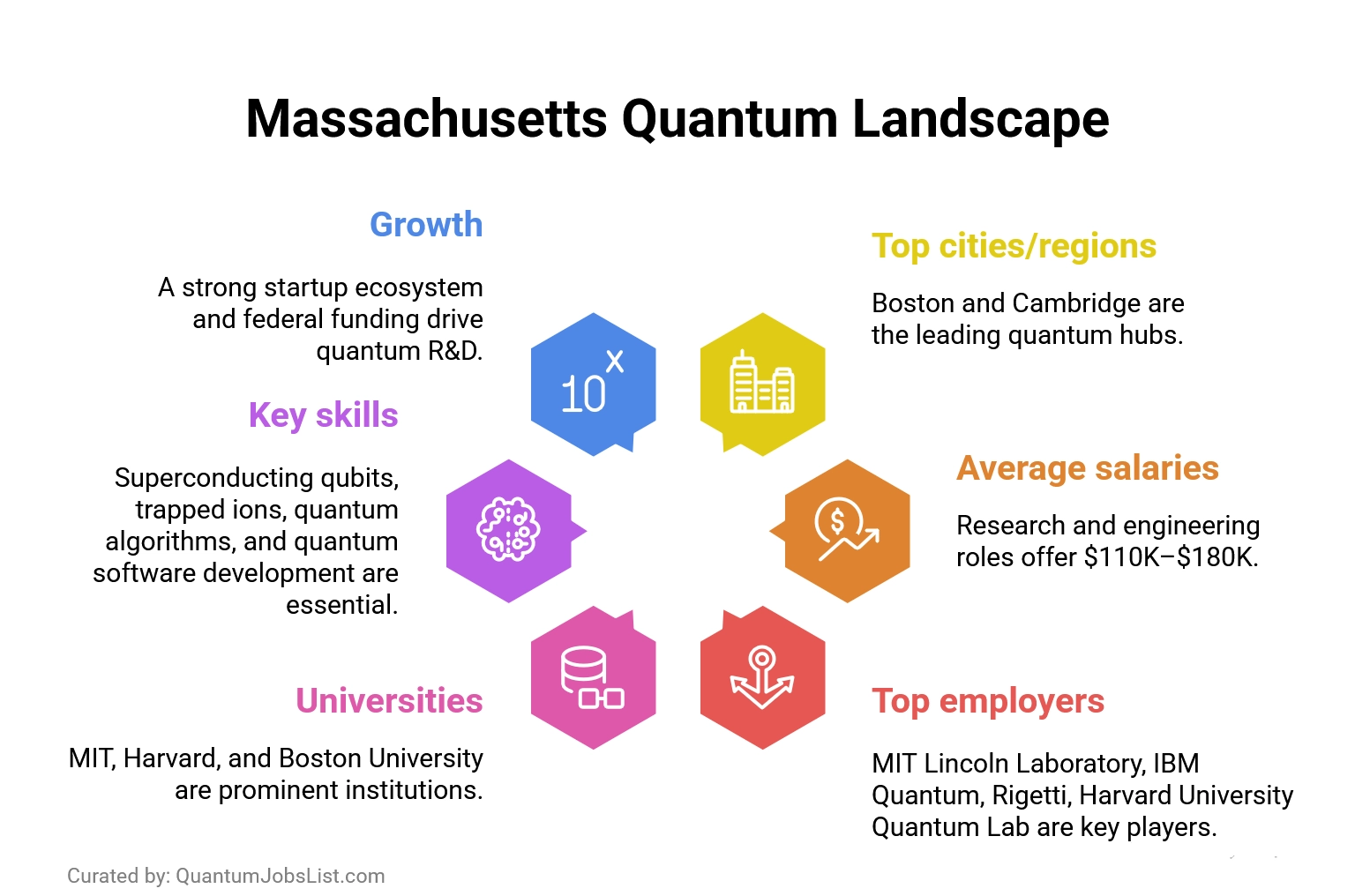












































Search Quantum Careers in Massachusetts
What You Need to Know
Massachusetts is a major hub for quantum research & technology, driven by top universities, national labs, and innovative startups.
Massachusetts offers unmatched opportunities to work on cutting-edge quantum computing projects. Prof. Seth Lloyd
What kinds of quantum jobs are available in Massachusetts?
Quantum Software Development, Hardware Engineering, Research Science, and Quantum Algorithms are all available in Massachusetts. Quantum AI, cryptography, and simulation projects are available at both universities and startups, in a variety of fields and at different company sizes.
Recruiters are seeking both entry-level graduates and experienced professionals.
What level of education do I need for a quantum job?
In some cases, a PhD in physics, computer science, or engineering is required. For other advanced research and engineering positions, a bachelor's or master's degree will suffice, particularly for positions that focus more on software and applied quantum work. Having relevant hands-on experience and coursework in the field will help you a great deal.
How much do quantum jobs pay in Massachusetts?
Quantum computing salaries in Massachusetts are competitive. Entry-level roles often start around $80,000–$100,000 a year. Experienced engineers and researchers can earn $150,000–$220,000 a year depending on expertise, company, and specialization. Senior positions in top startups or national labs can pay even higher.

What skills should I learn for quantum Massachusetts jobs?
- Software roles:- Python, Qiskit, Cirq, Braket, PennyLane & knowledge of quantum algorithms like Grover’s or Shor’s;
- Hardware roles:- superconducting qubits, trapped ions, cryogenics, microwave systems, FPGA programming and quantum control;
Additional skills include linear algebra, quantum mechanics fundamentals, problem-solving, teamwork & experience with simulations or collaborative projects.
Are there entry-level opportunities available in Massachusetts ?
Yes. Massachusetts offers internships, graduate programs, and junior roles at universities, research labs, and startups. These positions favor candidates who have industry experience, hands-on quantum work, or a research background.
They provide the opportunity to work with real quantum technologies and support the development of a positive work trajectory.
Boston and Cambridge are at the heart of the US quantum ecosystem, combining research, innovation, and industry. Dr. Mikhail Lukin
Can I move into quantum from a traditional tech career?
- Many software engineers, electrical engineers, and data scientists can transition into quantum computing by learning the fundamentals & relevant frameworks.
- Building personal projects, engaging in open-source initiatives, and obtaining certifications can enhance your profile. Networking with local research groups and attending workshops can also boost job prospects;
- Transferable skills like coding, problem-solving and project management are valued; making it feasible to shift from conventional tech roles to quantum careers.
Suggested Read: Quantum Computing Jobs USA

.svg)

